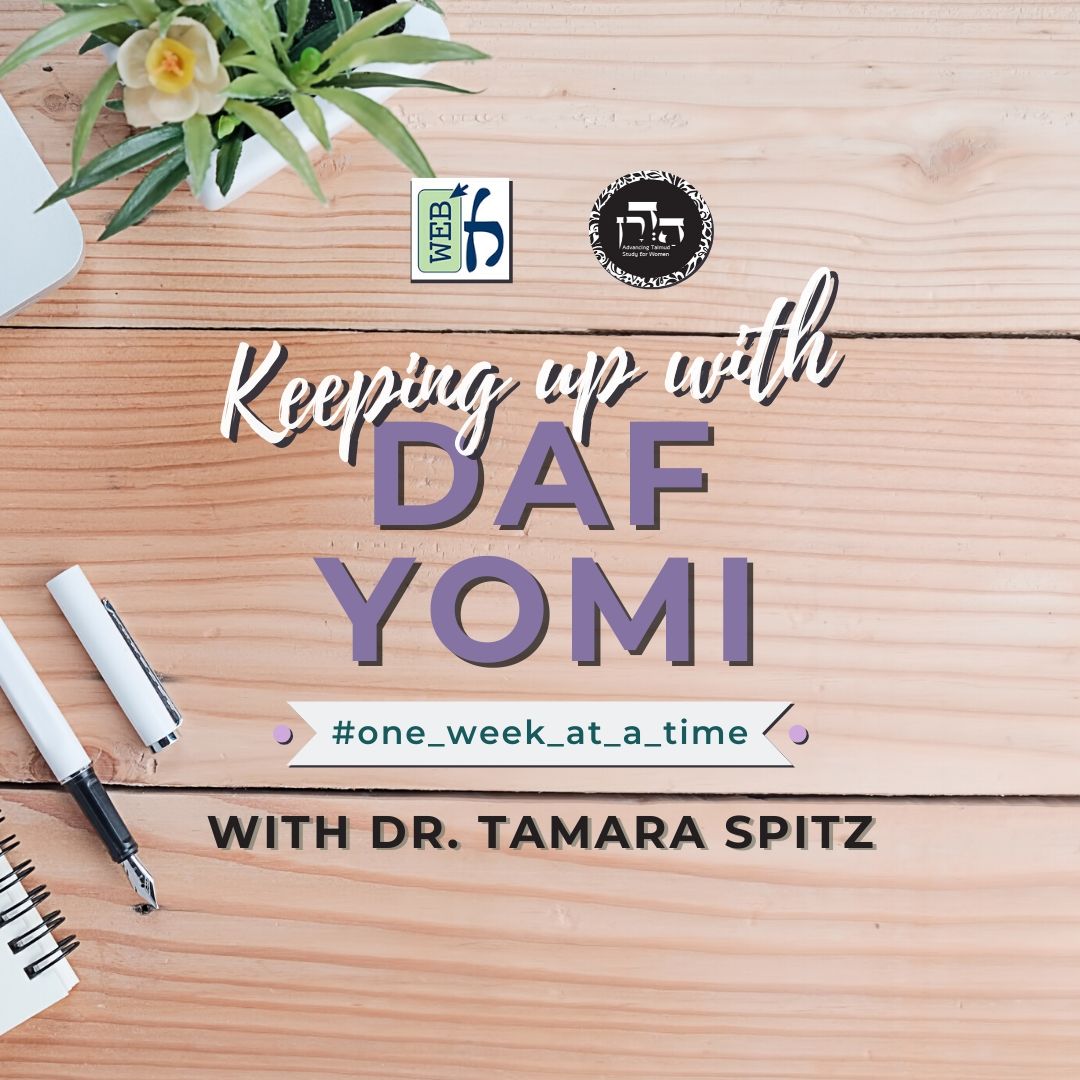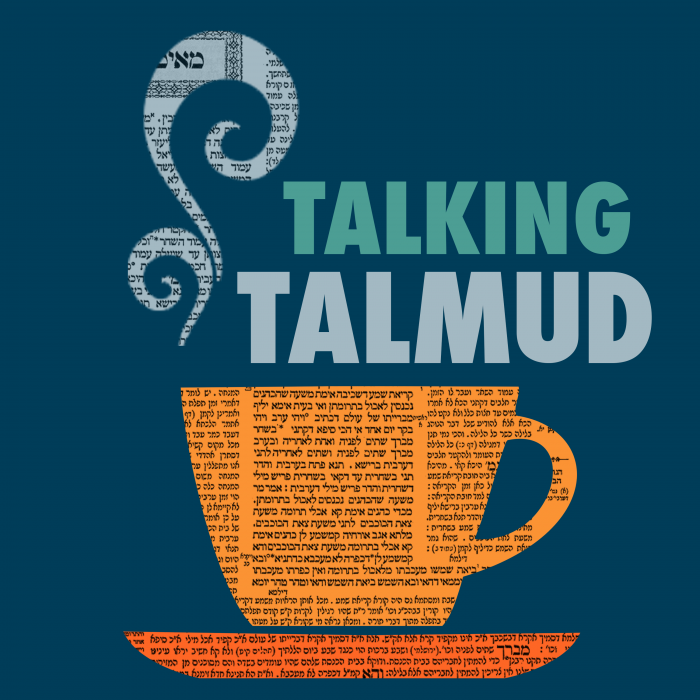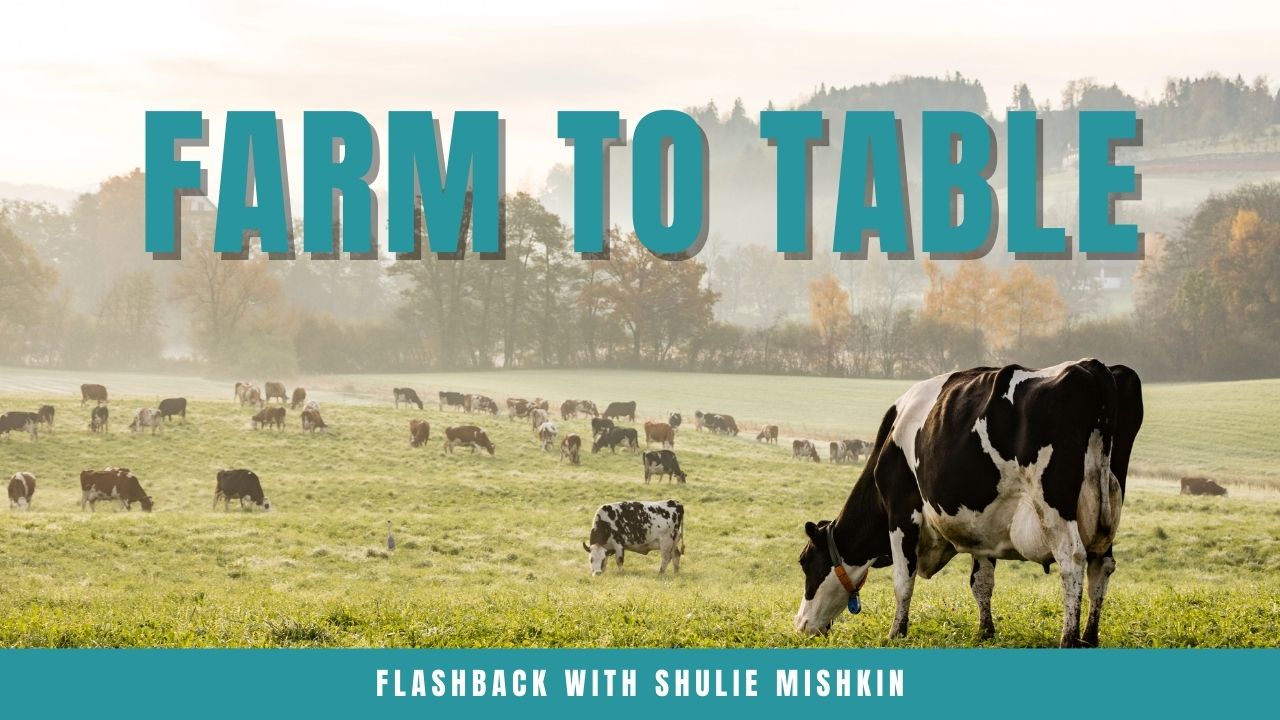Beitzah 2
בֵּיצָה שֶׁנּוֹלְדָה בְּיוֹם טוֹב, בֵּית שַׁמַּאי אוֹמְרִים: תֵּאָכֵל, וּבֵית הִלֵּל אוֹמְרִים: לֹא תֵּאָכֵל. בֵּית שַׁמַּאי אוֹמְרִים: שְׂאוֹר בְּכַזַּיִת וְחָמֵץ בְּכַכּוֹתֶבֶת, וּבֵית הִלֵּל אוֹמְרִים: זֶה וְזֶה בְּכַזַּיִת.
MISHNA: With regard to an egg that was laid on a Festival (Eduyyot 4:1), Beit Shammai say: It may be eaten even on that day, and Beit Hillel say: It may not be eaten, as the Gemara will explain at length. Apropos this exceptional case, in which Beit Shammai are lenient and Beit Hillel are strict, the mishna cites additional halakhot of the Festivals in which this unusual phenomenon occurs (Yoma 79b). Beit Shammai say: Leaven, i.e., dough that has leavened to such an extent that it is no longer used as food but as a leavening agent for other dough, is prohibited on Passover in the measure of an olive-bulk. However, the measure for edible leavened bread is greater, that of a large date-bulk. And Beit Hillel say: For both this and that, the measure is that of an olive-bulk.
הַשּׁוֹחֵט חַיָּה וָעוֹף בְּיוֹם טוֹב, בֵּית שַׁמַּאי אוֹמְרִים: יַחְפּוֹר בַּדָּקָר וִיכַסֶּה, וּבֵית הִלֵּל אוֹמְרִים: לֹא יִשְׁחוֹט אֶלָּא אִם כֵּן הָיָה לוֹ עָפָר מוּכָן מִבְּעוֹד יוֹם. וּמוֹדִים שֶׁאִם שָׁחַט, שֶׁיַּחְפּוֹר בַּדָּקָר וִיכַסֶּה — שֶׁאֵפֶר כִּירָה מוּכָן הוּא.
Furthermore, with regard to one who slaughters an undomesticated animal or a bird on a Festival (Eduyyot 4:2), in which case there is a mitzva from the Torah to cover the blood after slaughtering (Leviticus 17:13), Beit Shammai say: He digs earth with a shovel and covers the blood with that earth ab initio. And Beit Hillel say: He may not slaughter ab initio, unless he had earth prepared for that purpose while it was still day. But even Beit Hillel concede that if one already slaughtered the animal or the bird, then he should dig with a shovel and cover the blood. Additionally, they agree that the ashes of a stove are considered prepared for the use of covering blood, as will be explained by the Gemara.
גְּמָ׳ בְּמַאי עָסְקִינַן? אִילֵימָא בְּתַרְנְגוֹלֶת הָעוֹמֶדֶת לַאֲכִילָה, מַאי טַעְמַיְיהוּ דְּבֵית הִלֵּל? אוּכְלָא דְּאִפְּרַת הוּא!
GEMARA: The Gemara inquires: With what case are we dealing in this mishna? If we say that the mishna is referring to a chicken that is designated for eating, i.e., one planned to slaughter and eat a chicken that laid an egg, what is the reason that Beit Hillel prohibit eating the egg? It is food that has been separated [de’ifrat]. The entire chicken is considered food, as it is designated for eating, and this egg is simply a part that became detached. Just as one may partake of the chicken itself on a Festival, its egg should likewise be fit for consumption.
אֶלָּא, בְּתַרְנְגוֹלֶת הָעוֹמֶדֶת לְגַדֵּל בֵּיצִים.
Rather, the mishna must be referring to the case of a chicken designated for laying eggs. Since the owner of this chicken decided not to eat it on the Festival, it is classified as set-aside [muktze], and muktze items may not even be moved, let alone eaten. Since the chicken itself is muktze, its egg is muktze as well.
מַאי טַעְמַיְיהוּ דְּבֵית שַׁמַּאי? מוּקְצֶה הִיא! וּמַאי קוּשְׁיָא? דִּלְמָא בֵּית שַׁמַּאי לֵית לְהוּ מוּקְצֶה!
The Gemara asks: If so, what is the reason of Beit Shammai for permitting one to eat the egg? After all, it is muktze. The Gemara expresses surprise at this question: And what is the difficulty? Perhaps Beit Shammai do not hold that there is a prohibition of muktze? There are different opinions with regard to the scope of the prohibition of muktze. It is possible that Beit Shammai, like other tanna’im, maintain that there is no prohibition of this type of muktze. Perhaps this is the subject of their dispute with Beit Hillel.
קָא סָלְקָא דַּעְתִּין: אֲפִלּוּ מַאן דְּשָׁרֵי בְּמוּקְצֶה, בְּנוֹלָד אָסַר. מַאי טַעְמַיְיהוּ דְּבֵית שַׁמַּאי?
Before stating its proposed solutions for this difficulty, the Gemara notes: It enters our mind to say that even one who permits moving an item that was set aside by its owners on a Festival or Shabbat prohibits the owners from doing so with an object that came into being [nolad] on a Festival. One may not move an object that came into being on a Festival or Shabbat, since the owner never entertained the notion that he would be able to use it. This egg is certainly an object that came into being on the Festival. What, then, is the reason of Beit Shammai?
אָמַר רַב נַחְמָן: לְעוֹלָם בְּתַרְנְגוֹלֶת הָעוֹמֶדֶת לְגַדֵּל בֵּיצִים, וּדְאִית לֵיהּ מוּקְצֶה — אִית לֵיהּ נוֹלָד, וּדְלֵית לֵיהּ מוּקְצֶה — לֵית לֵיהּ נוֹלָד. בֵּית שַׁמַּאי כְּרַבִּי שִׁמְעוֹן, וּבֵית הִלֵּל כְּרַבִּי יְהוּדָה.
Rav Naḥman said: Actually, the mishna is referring to a chicken designated for laying eggs. However, our previous assumption was mistaken, as the Sage who holds that there is a prohibition of muktze in general also holds that there is a prohibition of objects that came into being, while one who does not hold that there is a prohibition of muktze likewise does not hold that there is a prohibition of objects that came into being (Shabbat 45b). Consequently, the dispute can be summed up as follows: Beit Shammai hold in accordance with the opinion of Rabbi Shimon, who maintains that there is no prohibition of muktze; and Beit Hillel hold in accordance with the opinion of Rabbi Yehuda, who rules that there is a prohibition of muktze.
וּמִי אָמַר רַב נַחְמָן הָכִי? וְהָתְנַן: בֵּית שַׁמַּאי אוֹמְרִים: מַגְבִּיהִין מֵעַל הַשֻּׁלְחָן עֲצָמוֹת וּקְלִיפִּין, וּבֵית הִלֵּל אוֹמְרִים: מְסַלֵּק אֶת הַטַּבְלָא כּוּלָּהּ וּמְנַעֲרָהּ.
The Gemara is puzzled by this explanation: And did Rav Naḥman actually say that Beit Hillel hold in accordance with the opinion of Rabbi Yehuda? But didn’t we learn in a mishna (Shabbat 143a) that Beit Shammai say: One may remove bones and shells left from the meal from the table, despite the fact that they are inedible and are muktze. And Beit Hillel say: It is prohibited to do so; rather, one may remove the entire board [tavla] that is the table surface, which is a vessel that may be carried, and shake it all at once. By moving the table, which is not muktze, one is able to shake off the bones and shells, but he may not move the items themselves.
וְאָמַר רַב נַחְמָן: אָנוּ אֵין לָנוּ אֶלָּא בֵּית שַׁמַּאי כְּרַבִּי יְהוּדָה, וּבֵית הִלֵּל כְּרַבִּי שִׁמְעוֹן!
And Rav Naḥman said: That version of the mishna is not in accordance with the halakha; rather, the opinions should be reversed, as we have nothing other than the following version of this dispute: Beit Shammai hold in accordance with the opinion of Rabbi Yehuda, who maintains that the prohibition of muktze applies, while Beit Hillel hold in accordance with the opinion of Rabbi Shimon, who maintains that the halakha of muktze does not apply. Why, then, does Rav Naḥman explain that the ruling of Beit Hillel in the case of the egg in the mishna is based on the opinion of Rabbi Yehuda, who holds that there actually is a prohibition of muktze?
אָמַר לְךָ רַב נַחְמָן: גַּבֵּי שַׁבָּת, דִּסְתַם לַן תְּנָא כְּרַבִּי שִׁמְעוֹן, דִּתְנַן: מְחַתְּכִין אֶת הַדִּלּוּעִין לִפְנֵי הַבְּהֵמָה, וְאֶת הַנְּבֵלָה לִפְנֵי הַכְּלָבִים —
The Gemara answers that Rav Naḥman could have said to you in reply: With regard to Shabbat, this is a case where the tanna taught us an unattributed mishna, which is generally accepted as the halakha, in accordance with the opinion of Rabbi Shimon, as we learned in a mishna (Shabbat 156b): One may cut pumpkins before an animal to facilitate their consumption, and likewise one may cut up an animal carcass before dogs, even if the animal died on Shabbat, to enable them to consume it. Although that carcass is classified as muktze, it may be moved on Shabbat.
מוֹקֵים לָהּ לְבֵית הִלֵּל כְּרַבִּי שִׁמְעוֹן. אֲבָל
The Gemara concludes: That unattributed mishna in tractate Shabbat is in accordance with the opinion of Rabbi Shimon. For this reason, Rav Naḥman establishes that the dispute between Beit Hillel and Beit Shammai should be understood to mean that Beit Hillel hold in accordance with the opinion of Rabbi Shimon, whom the halakha apparently follows, as there is a principle that the halakha is always in accordance with Beit Hillel’s opinion. However,
גַּבֵּי יוֹם טוֹב, דִּסְתַם לַן תַּנָּא כְּרַבִּי יְהוּדָה, דִּתְנַן: אֵין מְבַקְּעִין עֵצִים מִן הַקּוֹרוֹת וְלֹא מִן הַקּוֹרָה שֶׁנִּשְׁבְּרָה בְּיוֹם טוֹב — מוֹקֵים לָהּ לְבֵית הִלֵּל כְּרַבִּי יְהוּדָה.
with regard to a Festival, the tanna taught us an unattributed mishna in accordance with the opinion of Rabbi Yehuda (Shabbat 156b), as we learned in a mishna in this tractate: One may not chop wood on a Festival from beams prepared for use in construction work, nor may one chop kindling wood from a beam that broke on a Festival. As the beams were not prepared for this use when the Festival began, they are classified as muktze; this demonstrates that an unattributed mishna prohibits muktze on a Festival. Consequently, Rav Naḥman establishes the opinion of Beit Hillel in accordance with the opinion of Rabbi Yehuda, who prohibits muktze. He does so by asserting that the mishna is referring to the case of a chicken designated for laying eggs, which is muktze. This concludes the Gemara’s explanation of Rav Naḥman’s rendering of the tannaitic dispute.
מִכְּדֵי, מַאן סַתְמַיהּ לְמַתְנִיתִין — רַבִּי. מַאי שְׁנָא בְּשַׁבָּת דִּסְתַם לַן כְּרַבִּי שִׁמְעוֹן, וּמַאי שְׁנָא בְּיוֹם טוֹב דִּסְתַם לַן כְּרַבִּי יְהוּדָה?
The Gemara asks: Now since, i.e., consider the following: Who is the one who wrote and edited the Mishna, and arranged the unattributed mishnayot? It was Rabbi Yehuda HaNasi. Since the same Sage formulated the statements in both tractates, the question arises: What is different with regard to the halakhot of Shabbat, that he stated the unattributed opinion and ruled for us in accordance with the opinion of Rabbi Shimon, and what is different with regard to the halakhot of a Festival, that he stated the unattributed opinion and ruled for us in accordance with the opinion of Rabbi Yehuda?
אָמְרִי: שַׁבָּת דַּחֲמִירָא, וְלָא אָתֵי לְזַלְזוֹלֵי בַּהּ — סָתֵם לַן כְּרַבִּי שִׁמְעוֹן דְּמֵיקֵל, יוֹם טוֹב דְּקִיל, וְאָתֵי לְזַלְזוֹלֵי בֵּיהּ — סָתֵם לַן כְּרַבִּי יְהוּדָה דְּמַחְמִיר.
They answer and say: In the case of Shabbat, which is stringent with regard to its punishments (see 35b), and therefore people will not come to treat it with contempt, Rabbi Yehuda HaNasi taught us the unattributed mishna in accordance with the opinion of Rabbi Shimon, who rules leniently. Conversely, with regard to a Festival, which is lenient, as certain labors may be performed on a Festival, and therefore people will be more likely to come to treat it with contempt, he stated the unattributed opinion for us in accordance with the opinion of Rabbi Yehuda, who rules stringently.
בְּמַאי אוֹקֵימְתָּא — בְּתַרְנְגוֹלֶת הָעוֹמֶדֶת לְגַדֵּל בֵּיצִים, וּמִשּׁוּם מוּקְצֶה. אִי הָכִי, אַדְּמִפַּלְגִי בְּבֵיצָה, לִפַּלְגוּ בְּתַרְנְגוֹלֶת?
The Gemara asks: In what manner did you ultimately establish the mishna? It was established as referring to a chicken designated for laying eggs, and the prohibition is due to muktze. If so, rather than disputing with regard to an egg laid on a Festival, let them dispute with regard to the chicken itself. Instead of considering the secondary detail of an egg, Beit Shammai and Beit Hillel could discuss whether or not the chicken itself may be slaughtered on a Festival.
לְהוֹדִיעֲךָ כֹּחָן דְּבֵית שַׁמַּאי, דִּבְנוֹלָד שְׁרֵי.
The Gemara answers: Beit Shammai and Beit Hillel also disagree with regard to the chicken, but the dispute was phrased in this manner to convey the far-reaching nature of the opinion of Beit Shammai. The formulation of the mishna emphasizes the extent of Beit Shammai’s lenient opinion, that even in the case of an egg, which is not a regular muktze item but an item that came into being, an especially stringent type of muktze, Beit Shammai nevertheless permit it. By stating the dispute with regard to an egg, the mishna stresses Beit Shammai’s lenient opinion.
וְלִפְלוּגי בְּתַרְנְגוֹלֶת, לְהוֹדִיעֲךָ כֹּחָן דְּבֵית הִלֵּל, דִּבְמוּקְצֶה אָסְרִי! וְכִי תֵּימָא כֹּחַ דְּהֶתֵּירָא עֲדִיף — וְנִפְלוֹג בְּתַרְוַיְיהוּ:
The Gemara raises an objection: And let them disagree with regard to a chicken, rather than an egg, to convey the far-reaching nature of the opinion of Beit Hillel, who prohibit its use even in the more lenient case of muktze. And if you say it is better to present the dispute as in the mishna, so as to clarify the more lenient opinion, as the strength of leniency is preferable (Berakhot 60a), there is another option: And let them disagree with regard to both of these cases.
תַּרְנְגוֹלֶת הָעוֹמֶדֶת לְגַדֵּל בֵּיצִים, הִיא וּבֵיצָתָהּ, בֵּית שַׁמַּאי אוֹמְרִים: תֵּאָכֵל, וּבֵית הִלֵּל אוֹמְרִים: לֹא תֵּאָכֵל.
The mishna could have said: With regard to a chicken designated for laying eggs, it and its eggs, Beit Shammai say: It may be eaten, and Beit Hillel say: It may not be eaten. In this manner, the mishna could have referred to all aspects of the dispute, without the need for any lengthy addition. Consequently, Rav Naḥman’s explanation of the mishna is inadequate.
אֶלָּא, אָמַר רַבָּה: לְעוֹלָם בְּתַרְנְגוֹלֶת הָעוֹמֶדֶת לַאֲכִילָה, וּבְיוֹם טוֹב שֶׁחָל לִהְיוֹת אַחַר הַשַּׁבָּת עָסְקִינַן, וּמִשּׁוּם הֲכָנָה.
Rather, Rabba said: Actually, the above explanation should be rejected. We are dealing with a chicken designated for food and we are dealing with an egg that was laid on a Festival that occurs after Shabbat, i.e., on a Sunday. And the relevant issue is not the halakhot of muktze; rather, one may not eat the egg due to the prohibition against preparation from Shabbat to a Festival.
וְקָסָבַר רַבָּה, כֹּל בֵּיצָה דְּמִתְיַלְדָא הָאִידָּנָא — מֵאֶתְמוֹל גָּמְרָה לָהּ.
And in this regard, Rabba holds that any egg laid now was already fully developed yesterday, and merely emerged from the chicken today. Consequently, an egg laid on a Festival that occurred on a Sunday may not be eaten, as it was prepared on Shabbat, despite the fact that it was prepared naturally, by Heaven, rather than by man.
וְרַבָּה לְטַעְמֵיהּ. דְּאָמַר רַבָּה, מַאי דִּכְתִיב: ״וְהָיָה בַּיּוֹם הַשִּׁשִּׁי וְהֵכִינוּ אֶת אֲשֶׁר יָבִיאוּ״ — חוֹל מֵכִין לְשַׁבָּת, וְחוֹל מֵכִין לְיוֹם טוֹב, וְאֵין יוֹם טוֹב מֵכִין לְשַׁבָּת, וְאֵין שַׁבָּת מְכִינָה לְיוֹם טוֹב.
The Gemara comments: And Rabba, who prohibits one to derive benefit even from something that was not prepared by man, conforms to his standard line of reasoning. As Rabba said: What is the meaning of that which is written with regard to the manna: “And it shall come to pass on the sixth day, that they shall prepare that which they bring in” (Exodus 16:5)? According to Rabba, it can be inferred from this verse that on an ordinary weekday, “the sixth day,” one may prepare what is needed for Shabbat, and similarly, on an ordinary weekday one may prepare what is needed for a Festival. However, on a Festival one may not prepare for Shabbat, and likewise on Shabbat one may not prepare for a Festival.
אֲמַר לֵיהּ אַבָּיֵי: אֶלָּא מֵעַתָּה, יוֹם טוֹב בְּעָלְמָא תִּשְׁתְּרֵי! גְּזֵרָה מִשּׁוּם יוֹם טוֹב אַחַר הַשַּׁבָּת. שַׁבָּת דְּעָלְמָא תִּשְׁתְּרֵי! גְּזֵרָה מִשּׁוּם שַׁבָּת אַחַר יוֹם טוֹב.
Abaye said to Rabba: However, if that is so, and the concern is only due to preparation, let an egg laid on a regular Festival, one that does not occur on a Sunday, be permitted. Rabba responded: That egg is not prohibited by Torah law, but by rabbinic decree, due to the case of a Festival that occurs after Shabbat. Abaye asked: On a regular Shabbat, one that does not occur after a Festival, let it be permitted to eat an egg that was laid on that day, provided that one does not cook it. Rabba similarly answered: It is a decree due to a Shabbat that occurs after a Festival.
וּמִי גָּזְרִינַן? וְהָא תַּנְיָא: הַשּׁוֹחֵט אֶת הַתַּרְנְגוֹלֶת וּמָצָא בָּהּ בֵּיצִים גְּמוּרוֹת — מוּתָּרוֹת לְאָכְלָן בְּיוֹם טוֹב. וְאִם אִיתָא — לִיגְזַר מִשּׁוּם הָנָךְ דְּמִתְיַלְּדָן בְּיוֹמֵיהֶן!
Abaye further asked: And do we issue a decree of this kind? But isn’t it taught in a baraita (see 6b): In the case of one who slaughters a chicken on a Festival and finds inside it fully developed eggs with their shells, it is permitted to eat them on the Festival. And if it is so, that the aforementioned decree is in effect, let him issue a decree and prohibit these eggs found inside the chicken, due to those that are laid on that day.
אֲמַר לֵיהּ: בֵּיצִים גְּמוּרוֹת בִּמְעֵי אִמָּן — מִילְּתָא דְלָא שְׁכִיחָא הִיא, וּמִילְּתָא דְלָא שְׁכִיחָא לָא גְּזַרוּ בַּהּ רַבָּנַן.
Rabba said to him: This is not difficult, as the case of fully developed eggs found inside their mother is an uncommon matter, and in a case of an uncommon matter the Sages did not issue a decree as a preventive measure (Eiruvin 63b). The Sages issued their decrees only for usual situations, in which people might err, but they did not apply them to rare cases. This concludes the Gemara’s discussion of Rabba’s explanation.
רַב יוֹסֵף אָמַר: גְּזֵרָה מִשּׁוּם פֵּרוֹת הַנּוֹשְׁרִין.
The Gemara proceeds to explain other interpretations of the mishna. Rav Yosef said: An egg laid by a chicken designated for food is prohibited for a different reason: It is a decree due to fruits that fall from a tree (Eiruvin 39b). Fruits that fall from a tree on Shabbat or a Festival may not be eaten, and the same applies to eggs that emerge from a chicken.
אֲמַר לֵיהּ אַבָּיֵי: פֵּרוֹת הַנּוֹשְׁרִין טַעְמָא מַאי —
Abaye said to Rav Yosef: With regard to fruits that fall, what in fact is the reason that the Sages prohibited them?
























